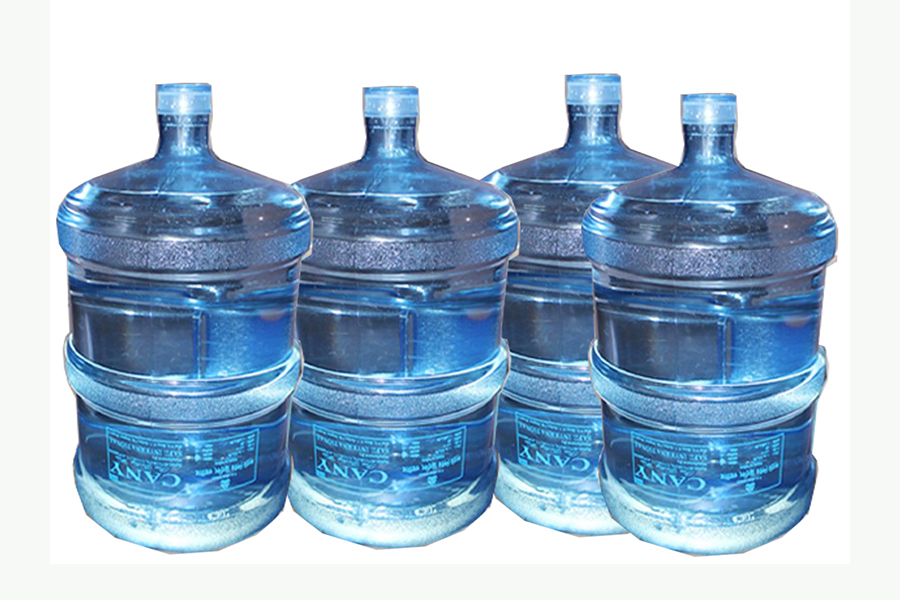Buying water or health hazard!
Eateries admit they serve jar water without knowing its quality

Published :
Updated :

A section of restaurants and eateries in the capital are serving customers unsafe jar water, posing serious health hazards, in the absence of proper regulation and monitoring.
The management of several mid-range restaurants admitted they have no knowledge of the quality of jar water they are selling to their customers.
“We collect jar water from different vendors in our area. But to be candid, we don’t know how safe and clean the water is,” a manager of a restaurant in the Purana Paltan area told the FE.
Several people involved in jar water supply said on condition of anonymity that most of the factories lack production facilities; they just collect piped water from WASA and apply some chemicals to make them ‘edible’.
Usman Goni, who has been involved in water distribution to offices, hotels and restaurants in Motijheel business district since 2009, also pleaded his ignorance of the quality of the water he collected from a plant in Khaligaon in the capital.
He admitted that he lacks knowledge of keeping water safe in the supply chain.
Public health specialists are concerned over the poor monitoring of potable water by the regulatory body and the insensitivity of the restaurant management that, they believe, contribute to health hazards.
“If we fail to ensure safe drinking water it could cause life-threatening diseases like diarrhoea, cholera, typhoid, jaundice and other stomach disorders,” said renowned public health specialist and virologist Dr Mushtaq Hussain.
According to him, germ-contaminated water cannot be purified until boiled to an optimum level while traditional filtration also cannot kill bacteria and viruses.
A recent study conducted by the government’s Institute of Public Health (IPH) on the quality of water in the capital revealed that 94 per cent of the water used at the footpath tea shops contained faecal coliform, a bacterium that is found in the soil, water and in human or animal waste.
According to the research data published at the end of last year, 44 per cent of the water contained other bacteria and 29.4 per cent contained heavy metals beyond permissible levels.
Country Director of WaterAid Bangladesh, an international non-government organisation working for water, sanitation and hygiene, corroborated the concern of Dr Mushtaq.
Talking to the FE, Hasin Jahan said, “Most jar water suppliers lack certification. Due to the lapses in monitoring, people, particularly of the low-income bracket, are compelled to drink unsafe water.”
A senior official of Bangladesh Standards and Testing Institution (BSTI), however, said jar water is one of the 299 products under mandatory licensing, meaning the production of any of these goods will require licence from the institution.
“We have certain regulations. Legally, there is no way to produce jar water without taking certification marks. Anyone wishing to produce jar water requires applying for certification marks and then going through the approval process,” said Gazi Md Nurul Islam, Director (Chemical), BSTI.
He said the standards authorities conduct regular drives and cancel licences in case of any violation of safety standards to ensure that the potable water being supplied to restaurants is safe.
Contacted, Mohammad Barek, Chairman of Sensible Beverage, a jar water producer having a plant at Khilgaon and supplying its product to Motijheel and surrounding areas, claimed that they ‘completely’ follow the standard of BSTI in producing jar water.
“We have a 5,000-litter water tank that initially extracts water from the ground. Then the water goes through a purifying process where we use chemicals to make it potable. We use ultraviolet rays if required to further purify water,” he told the FE.
Barek, however, did not explain who has determined that the water requires ultraviolet rays for purification.
The company owner also could not confirm if they get their final goods checked by a third party outside their own team for advanced safety.
Hasin Jahan of WaterAid said jar water can be contaminated in both production and bottling processes. She suggested regular surveillance to monitor the production and supply of drinking water across the country to ensure it is safe.
“We must have a surveillance body to monitor the production and supply of drinking water. For this to ensure, WHO has a “Water Safety Plant Framework” to follow which says there are five parameters to ensure the production of safe potable water,” she said.
Hasin Jahan also suggested a mechanism to prevent the supply of water without a third-party standard test like the one WASA follows in producing and marketing bottled water.
According to her, WASA has its own examining body but it has to have its water tested by a third party to ensure standard.
nsrafsanju@gmail.com


 For all latest news, follow The Financial Express Google News channel.
For all latest news, follow The Financial Express Google News channel.